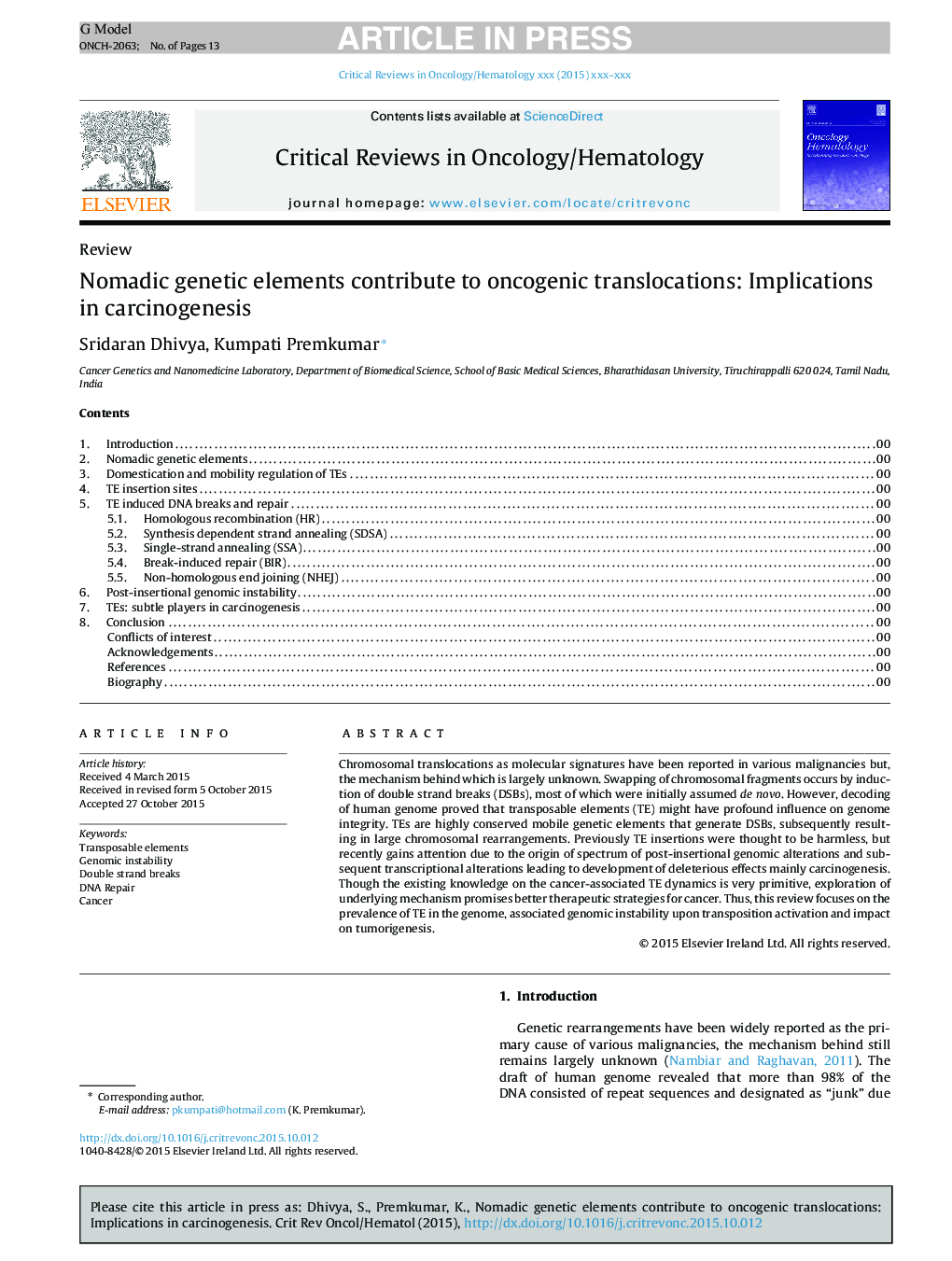| Article ID | Journal | Published Year | Pages | File Type |
|---|---|---|---|---|
| 6113464 | Critical Reviews in Oncology/Hematology | 2016 | 13 Pages |
Abstract
Chromosomal translocations as molecular signatures have been reported in various malignancies but, the mechanism behind which is largely unknown. Swapping of chromosomal fragments occurs by induction of double strand breaks (DSBs), most of which were initially assumed de novo. However, decoding of human genome proved that transposable elements (TE) might have profound influence on genome integrity. TEs are highly conserved mobile genetic elements that generate DSBs, subsequently resulting in large chromosomal rearrangements. Previously TE insertions were thought to be harmless, but recently gains attention due to the origin of spectrum of post-insertional genomic alterations and subsequent transcriptional alterations leading to development of deleterious effects mainly carcinogenesis. Though the existing knowledge on the cancer-associated TE dynamics is very primitive, exploration of underlying mechanism promises better therapeutic strategies for cancer. Thus, this review focuses on the prevalence of TE in the genome, associated genomic instability upon transposition activation and impact on tumorigenesis.
Related Topics
Health Sciences
Medicine and Dentistry
Hematology
Authors
Sridaran Dhivya, Kumpati Premkumar,
